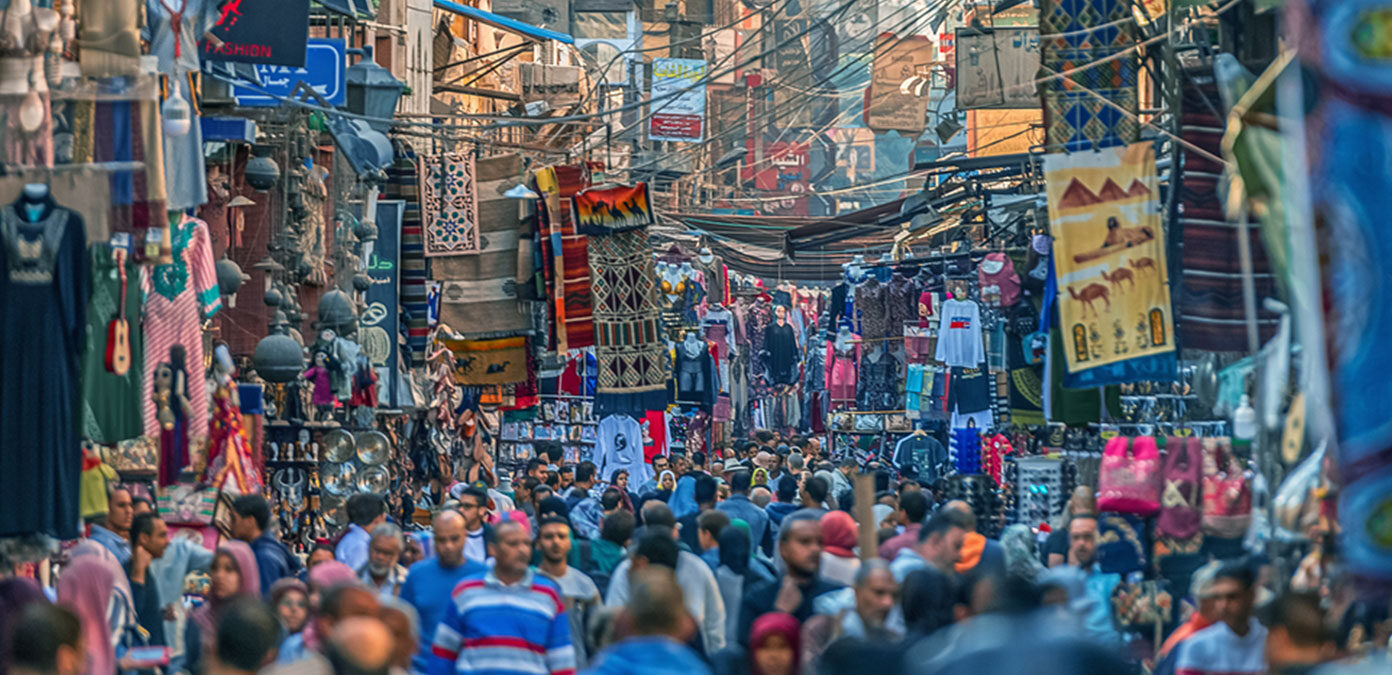Investors race into MENA


Spurred on by the recent commodity super-cycle, MENA markets have outperformed many of their global peers, and this has caught the attention of return hungry investors, a number of whom are now ramping up their exposures to the region. At the same time, some of the leading economies in MENA – notably Saudi Arabia and Egypt – are busy implementing ambitious market reforms, in what is likely to usher in even more outside investment.
Amid the challenging headwinds facing the global economy, Saudi Arabia is widely seen as being an excellent investment opportunity. There are several reasons for this.
Firstly, the country is expected to overtake India as the world’s fastest growing economy, with GDP growth projected to reach 7.6 per cent by the end of March, thanks to the soaring energy prices.1
Although Saudi Arabia’s economy is in an enviable position, the government is not acting complacently. The regime knows that it needs to diversify the country’s revenue streams beyond just oil and gas, which is why it has launched the Vision 2030 initiative.
Vision 2030 is expected to usher in massive outside investment into Saudi Arabia’s infrastructure as the country attempts to transform itself not just into a major transportation and logistics hub linking up Asia, Europe and Africa, but a leading centre for innovation, renewable energy, tourism and entertainment.
Saudi Arabia’s domestic equity market is also equally buoyant, making it a compelling investment destination for global institutions. Now the ninth largest stock exchange in the world and the most liquid within the GCC (Gulf Cooperation Council), the Tadawul boasts a market capitalisation of around USD2.7 trillion. Following on from the landmark USD29.4 billion Aramco IPO in 2019, a number of privately held and state owned businesses in Saudi Arabia have since chosen to go public. Of the 48 IPOs that took place in MENA last year, 34 were in Saudi Arabia.
Efforts to make investing in the domestic market more palatable for foreign institutions have also been enacted by the regulator. For instance, the AUM threshold for foreign investors to register as a Qualified Foreign Investor (QFI) in Saudi Arabia has been steadily lowered over the years, and there is speculation it could be reduced even further. Such a move would encourage even greater foreign investor participation in the local market. QFI assessment rules have been further relaxed recently making it easier for new QFIs to access the Saudi market e.g. an application process to determine QFI eligibility as well as the assessment agreement are no longer required.
Despite this progress, outside investors do still face barriers in Saudi Arabia. A solo QFI cannot own more than 10% of the shares of a listed Saudi Arabian company, while foreign investors – in aggregate – cannot own more than 49 per cent of a single listed company. However Foreign Strategic Investors can invest more than 49% in single listed company subject to fulfilling certain qualifications.
On post-trade, Saudi Arabia has implemented extensive reforms – including the adoption of a T+2 settlement cycle, together with the establishment of an independent custody model and a national Central Securities Depository and Central Counterparty Clearing House.
These measures have helped facilitate Saudi Arabia’s inclusion onto a number of leading Emerging Market indices – including those operated by MSCI and FTSE – a move which has precipitated large investor inflows. Recent Tadawul data shows that there were 3,151 registered QFIs in Saudi Arabia at the end of 2022, versus just 117 in 2017.
Fuelled by strong growth and the government’s constructive reform agenda, these foreign inflows are only expected to accelerate further moving forward.
Egypt is another MENA market which is capturing the attention of global investors – despite it facing serious inflationary pressures, a depletion of FX reserves and a falling currency.
This is because the country is underpinned by some strong fundamentals.
Egypt’s government has implemented a succession of bold measures aimed at boosting the country’s competitiveness. Between 2015-2019, Egypt received USD12 billion in loans from the International Monetary Fund, but these were conditional on the government adopting a series of structural reforms, including reducing fuel subsidies and devaluing the Pound.
Not only did these measures help Egypt attract billions of dollars into its local debt market and enable the Central Bank to shore up its foreign reserves,2 but it meant the economy was shielded against the shock of the pandemic. In fact, Egypt was one of the very few emerging markets to see its economy actually grow during 2020-2021.
Since then, the government has continued its reform agenda, by embracing sustainable finance (i.e., green bonds), streamlining and automating trade facilitation and updating its bankruptcy rules. All of these initiatives are designed to empower the private sector and strengthen job creation, in what will ultimately help draw in more foreign investment.
Standard Chartered’s history in MENA stretches back more than a century with the region being a core component of our overall strategy. As a custodian, we provide support to a wide range of local and global investors and intermediaries throughout MENA.
Saudi Arabia and Egypt are two countries within MENA that have seen growing interest from external investors, and we have made strategic plans to enhance our already robust suite of services in the region. With that, we are very pleased to share that we are in the process of setting up custodian offerings in both Saudi Arabia and Egypt that will further enhance our position as the preferred partner in clients’ growing investment focus and needs in the region.
1 Institutional Investor – February 9, 2023 – The Saudi Exchange: Building the future of Capital Markets today
2 Bloomberg – July 24, 2019 – IMF approves last instalment of USD12 billion loan to Egypt

The best is yet to come in emerging and frontier securities services markets. We’re ready to help.

Turning expertise into actionable insights. Explore our views on what to watch out for.